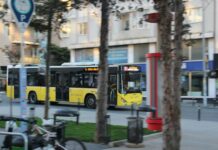Are we human? That is the main question surrounding the 3rd Istanbul Design Biennial which debuted on Saturday 22 October.
“The 3rd Istanbul Design Biennial explores the intimate relationship between the concepts of ‘design’ and ‘human’. Design always presents itself as serving the human but its real ambition is to redesign the human.”
While I couldn’t exactly answer the question after visiting, it still proved to be worthwhile anyway!
This year’s biennial is held in five different locations, one of them being the Galata Greek Primary School. I came in without expectations, to ‘just’ see a few pieces and then leave within a considerable amount of time. However, while there time flew by and I woke up when they announced there was only five minutes left before closing.
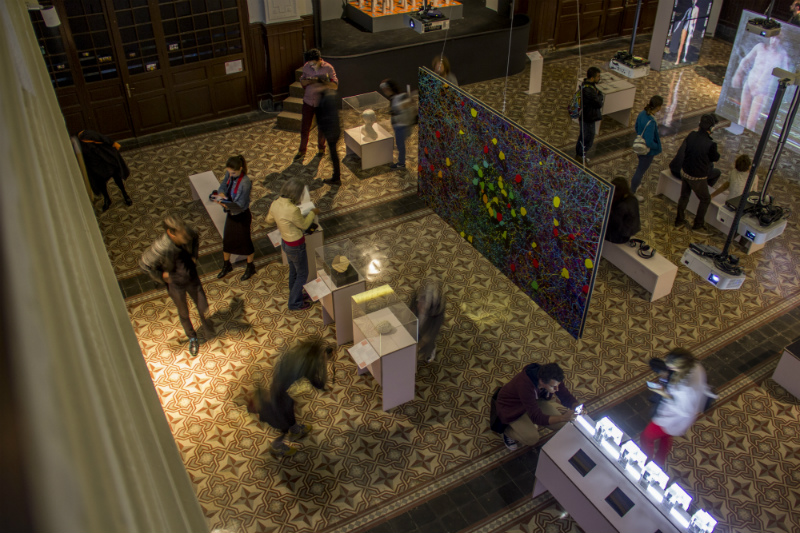
The old Greek school, dating back to 1885, in itself is already a nice place to visit. Add to that a rather varying range of drawings, sculptures, videos and other installations and it’s a perfect place to spend a few hours wandering through.
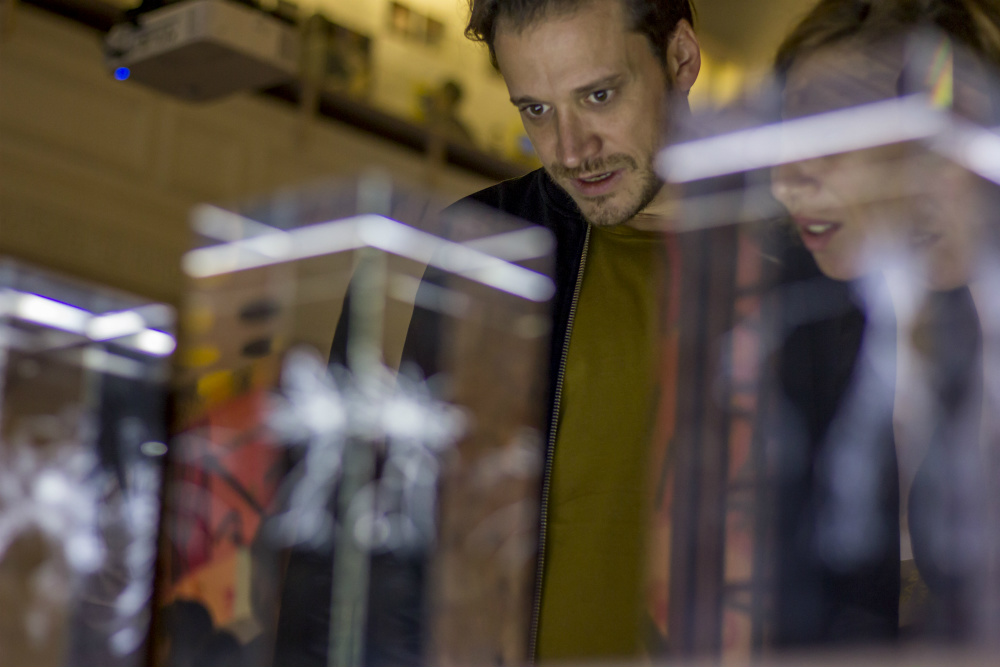
“Are We Human?” starts off quite literally with a piece of video art on the dissection of a body by medical students — not for the feeble stomached. The whole floor is filled with various topics on human life: our limits, our growth, decay and transformations.
Two interesting pieces of video art on the mapping of the human body in 3D models are opposite each other. Memex is a piece of a video clip for the band Duologue by 3D artists from the UK. The amount of detail in the work is just amazing. Delusional Mandela is an artwork by Lu Yang (China) and focuses on the process of transforming herself to an asexual human creation. The video is quite trippy and strange while also focusing on the neuroscience.
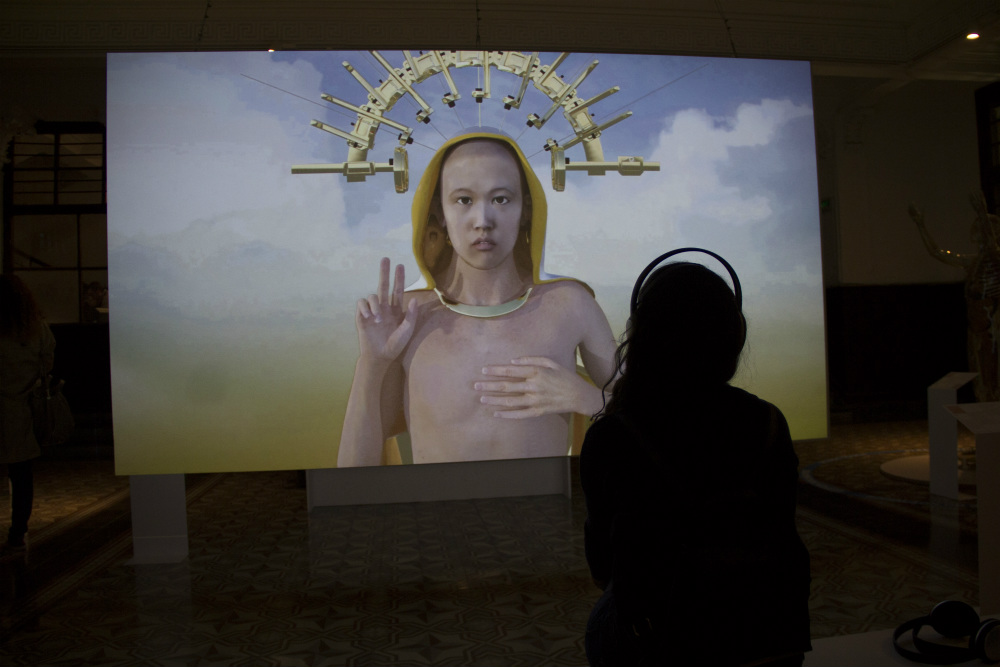
Some elements of the exhibition contrast with each other. Take for example the installation about the plastic surgery industry of Gangnam, Seoul in South Korea — host to the highest density of plastic surgeons in the world. Compare that to the video art about the process of making prosthetic legs or arms in a factory in Germany. Both involve changes to the body — one voluntarily and one out of pure necessity. Makes you think.
Walking upstairs to the balcony above the ground floor, the exhibition ‘zooms out’ to a larger scale, away from the individual human body to, for example, designs of rockets! Yes, a wide array of topics are feature, and the sky is the limit. Space Design by Galina Balashova (Russia) are the original drawings for Russian spacecraft vessels. Having worked for the USSR for two decades, she was in charge of interior design, ergonomics, lighting and color schemes. These drawings used to be classified but can be viewed in the Galata Greek School this month.
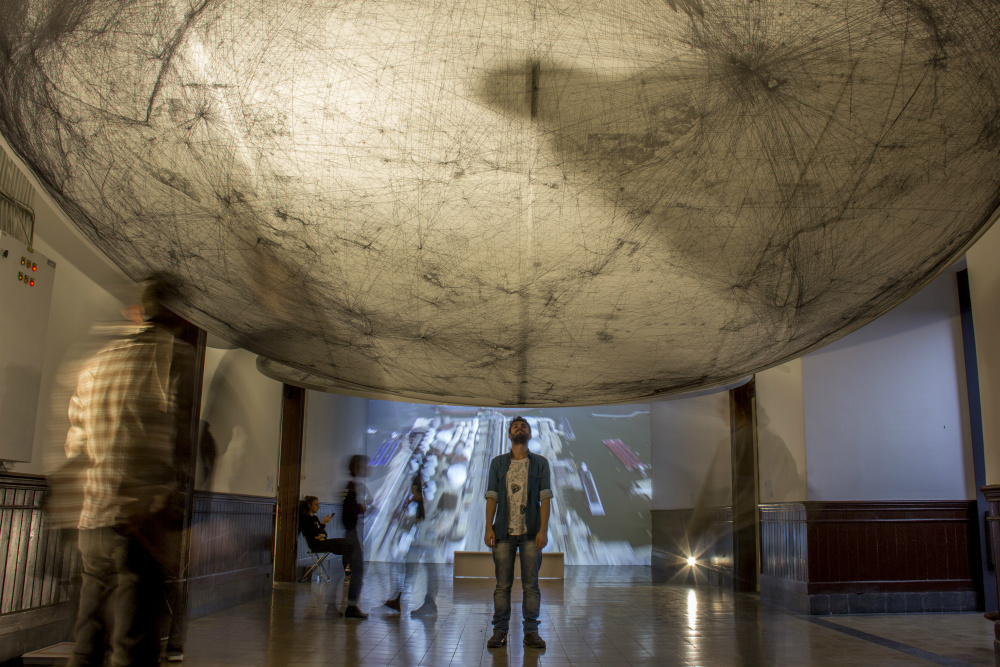
Having zoomed out to a world view, many current issues are addressed. This shift makes the whole experience resonate. From the world’s hunger for oil to the refugee crisis. The piece of ‘art’ that struck me most was the analysis of a refugee boat on the Mediterranean drifting from the Tunisian coast trying to get to Italy. Even though they were spotted by several boats, nobody rescued the 60 refugees. In a deep analysis of the different boats via radar data, the artists tried to figure out who is responsible for the death of the refugees. It gives such a raw and simple overview of the reality.
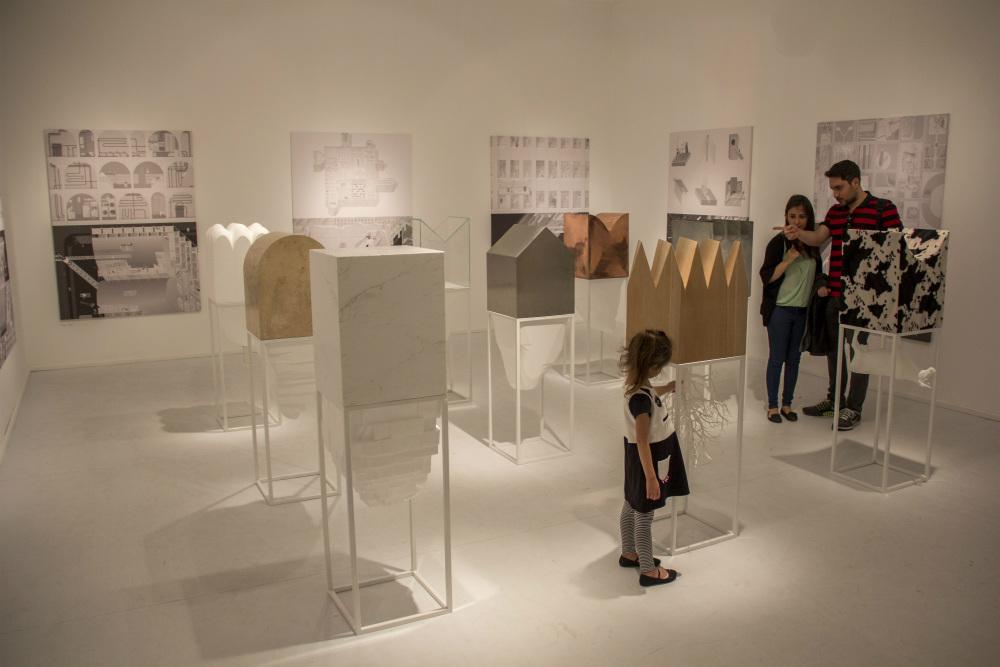
Walking around the building, the only downside is the size of the exhibition because I simply could not finish it! (Or I will just come back for a second time.) I just ran through the architecture section and then to the rooftop to view the Galata tower at night until we had to leave.
This 3rd Istanbul Design Biennial is very interesting due to its size and variety. If you are at all interested in humans connected to design, it’s a great opportunity to go there and view some of the pieces. Entrance is free, anyway.
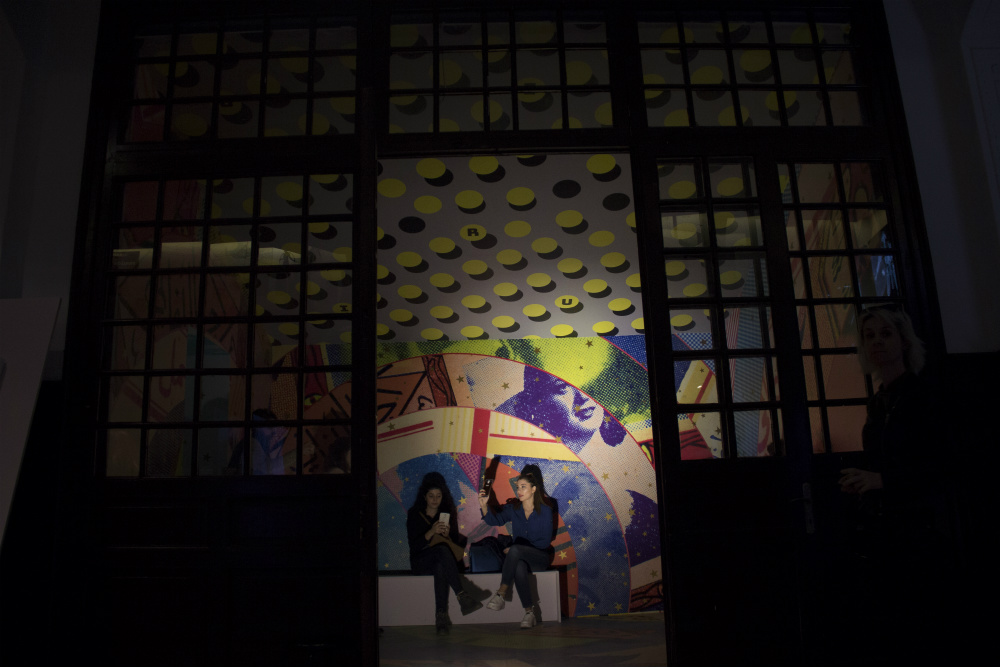
For more information, visit http://arewehuman.iksv.org/. The exhibition runs until Sunday 20 November. Galata Greek Primary Schools is closed on Mondays, with normal operating hours from 10:00 to 19:00.
All images courtesy of the author.
Kemeraltı Cad. No: 49 Karaköy Istanbul
[geo_mashup_map]

